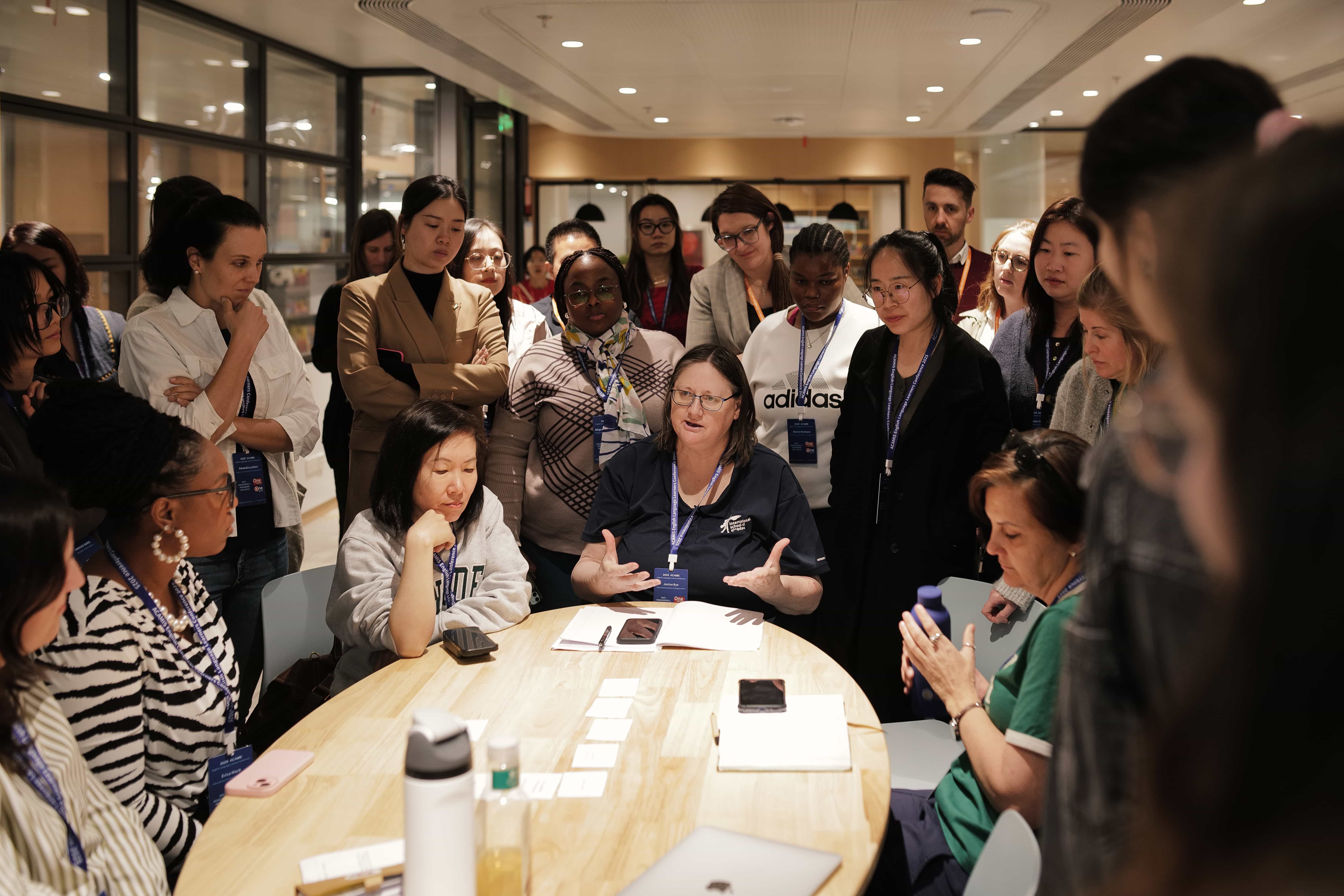April 11th, 2025

Janine Rye
ELS Teacher

Reading the inside story – The science of Reading
Raising readers in Qingdao: Why reading matters from a literacy expert
Parents and teachers often ask: What can I do to help my kids read? When do children become better at reading? How do we teach reading effectively? At the International School of Qingdao, these are questions we reflect on often. To explore why reading matters and how we can best support young readers, we’re excited to introduce our own English Language Support teacher, also a Reading Specialist, Ms. Rye (soon to be Dr. Rye!). In the article that follows, she shares thoughtful insight into the reading process and explains how just 20 minutes of reading a day can have a powerful, lasting impact on a child’s academic success—and beyond.

Reading is an essential tool needed to effectively participate in society. With proficiency in literacy comes a broader choice of careers.
Research shows that over 90% of children could learn to read if their teacher used instructional practices based on the Science of Reading.
The Science of Reading is a collection of educational, psychology, linguistics, and neuroscience research that explains how we learn to read. It also includes best practices for teaching Reading. It is not a one-size-fits-all program that somebody can buy. Scientists have spent decades studying the following questions: What skills are important for learning to read? When do these skills develop? How should they be taught?

Humans have only been reading and writing for about 5000 years, and large populations only since the Industrial Revolution in the 1800s. Speaking, however, has been around for considerably more time. Our brains have had many more years to allow us to express and process language easily. Oral language develops naturally through parents speaking to their children. Reading to your child will not teach them to read. Reading depends on circuits that evolved for other purposes; brain regions initially developed to process vision and spoken language.
Reading is NOT natural; it must be taught!
The primary benefit of the Science of Reading-Based Instruction is that it provides all students with explicit, direct, and cumulative teaching, which research has proven to help most learners achieve skilled Reading.

How can parents & guardians help at home?
Asking the right questions. When reading with your child, check for understanding by asking questions. Don’t just ask questions at the end, it’s important to check for understanding before, during and after reading. Here are some questions to ask!
Before
What do you think will happen in this story?
What might be the problem?
Where may be the setting of the story?
What do you know about this topic?
What does this story make you think of?
What are you wondering?
What does the title tell you?
During
What do you think will happen next?
What can you tell me about the story so far?
How do you feel about the story so far?
What questions do you have?
Why do you think the characters did that?
What would you have done?
After
What was the title?
What was the problem/solution in the story?
Why do you think the author wrote this book?
What was your favorite/least favorite part?
What would you change about the story?
What will happen next?
Prove it!
Every time you read with your child, be sure to ask questions before, during and after reading. While asking your AFTER reading questions, have your child open the book and prove their answer. Ask them HOW they know the answer they provide. If you are reading something that can be written on, have your child highlight the answer. If you’re not able to write on the text, use a Post-it note to label the answer. Be aware that there are some questions you may ask that cannot be proven, such as “What does the story remind you of?” Finding the answer in the text is a great skill for readers to master.
Reading 20 minutes a day helps increase student success in school and beyond. Much of academic success depends on the ability to read well. Reading practice exercises the brain and builds its abilities. Reading 20 minutes a day will help your child to be academically successful.

One of the most important things we can do to support our children’s success is to read every day.
Why not start today? Pick up a book and read with the children in your life.
A special encounter
Book a personalized tour of International School of Qingdao and experience this life-changing community for yourself.
Follow your calling
Help us inspire our students to make a life-changing difference for the common good.